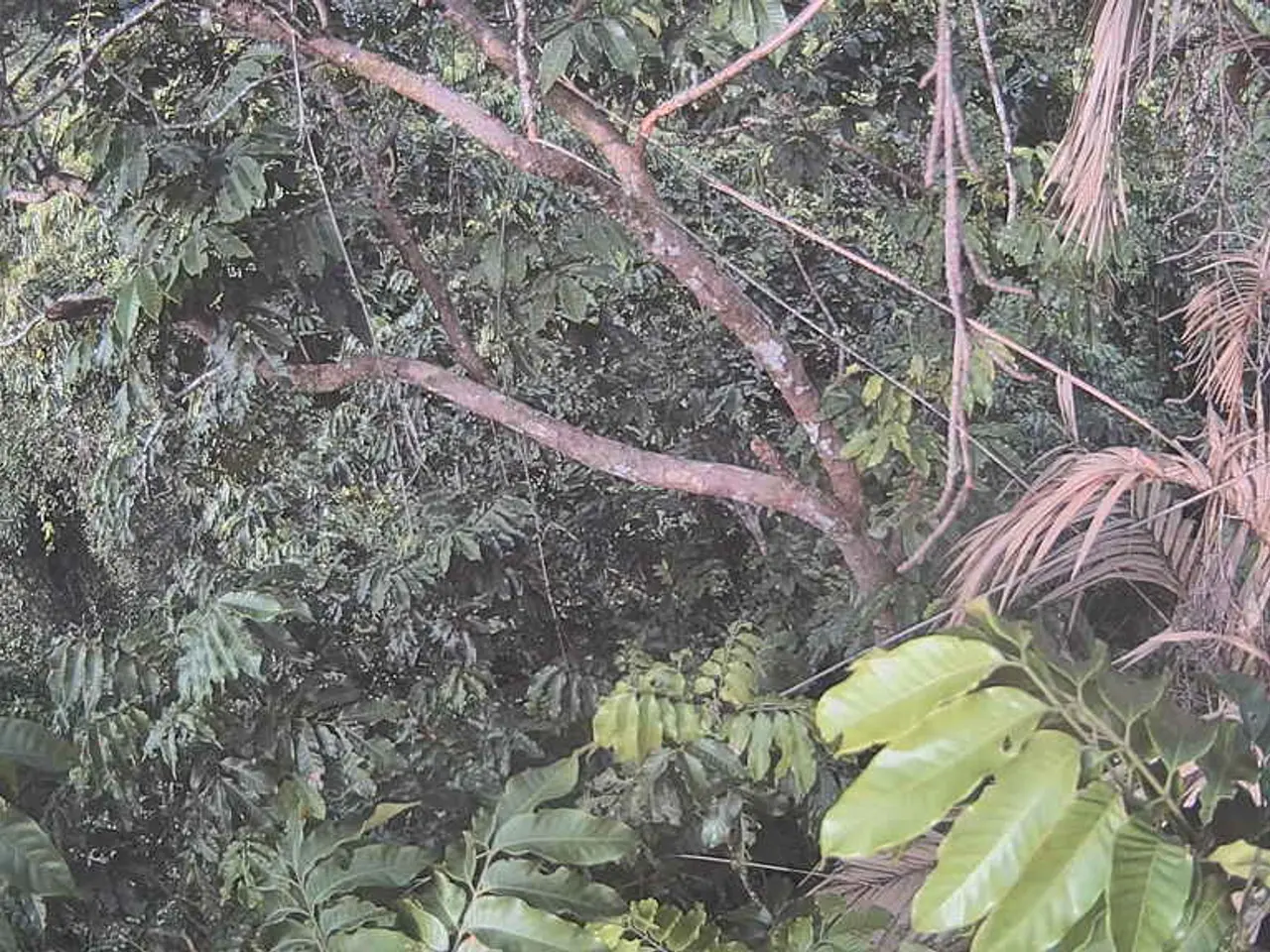Catastrophic Impact of Palm Oil Production
In a bid to address the environmental and social issues associated with traditional palm oil production, lab-engineered alternatives are making significant strides in sustainability, cost, and market readiness. These alternatives, driven by advances in fermentation and carbon-based fat production technologies, are poised to offer a cleaner, climate-friendly alternative to palm oil.
Sustainability Impacts
These lab-engineered fats avoid the environmental and social issues linked to traditional palm oil production, such as tropical deforestation, wildlife habitat destruction, and human rights abuses. Unlike replacing palm oil with other vegetable oils—which can create other climate issues—these alternatives use precision fermentation or carbon-capture processes that drastically cut greenhouse gas emissions and land use [1][2][5]. For example, Savor’s carbon butter uses CO₂ from the air and hydrogen from water, synthesizing fat molecules identical to those in dairy butter but without animals or plants, thus offering a clean, climate-friendly fat source [2][5].
Cost and Industrial Scale
While exact cost data remain limited, companies have raised multi-million dollar funding rounds (e.g., NoPalm at $6.5M, Eclipse Ingredients with $7M AUD) and are scaling production using industrial fermentation techniques [1][3]. This suggests growing investor confidence and advancing manufacturing capability toward cost-effective commercial scale. Products like NoPalm’s Revóleo oils are designed as direct replacements for palm oil in confectionery, bakery, and cosmetics, already adopted by giants such as Unilever and Colgate-Palmolive, indicating emerging market readiness [1].
Market Readiness and Adoption Outlook
Savor aims to bring its lab-made carbon butter to retail shelves around 2027, with chocolates made using their butter debuting in the 2025 holiday season [5]. Consumer surveys show an increasing favorability toward palm oil alternatives, signaling positive market acceptance if products can meet sensory and price expectations [1]. However, regulatory landscapes vary globally, and some regions (like Texas for lab-grown meat) have bans that could influence related fermentation-based food innovations [4].
The Race to Market
Companies like NoPalm Ingredients and Savor are at the forefront, with products already engaging major industry players and approaching commercial viability. C16 Biosciences, a company founded by Ticku and McNamara, is working on producing synthetic palm oil using yeast in a lab, aiming for a commercial product available by summer 2020, first in cosmetics and later in food [6]. The team's goal is to have a product that can outcompete palm oil on sustainability, flavor, function, and cost [7].
In theory, it is possible to bio-manufacture oils using oil-producing organisms like algae and yeast to outcompete palm oil [8]. However, challenges remain, such as the high cost of production compared to palm oil, with most alternatives still three to four times the cost [9].
The Impact on Wildlife and Forests
Palm oil is a top driver of deforestation in Southeast Asia and a threat to nearly 200 vulnerable or endangered species, including orangutans, gibbons, and tigers [10]. A report from the International Union for Conservation of Nature found that alternatives to palm oil would invariably result in increased deforestation and threats to endangered species [11]. However, with lab-engineered alternatives promising lower environmental footprints, there is hope for a more sustainable future.
The story first appeared in Atmos Volume 2: Latitude, a publication that traces lines connecting cultures around the world [12]. The team's goal is to have a commercial product available by summer 2020, first in cosmetics and later in food [13]. Ivana Gazibara, associate director of Forum for the Future, states that most of the alternative oils she's researched are still three to four times the cost of palm oil [14]. Ticku, the founder of C16 Biosciences, states that her team is working as fast as they can to get a product to market, as people want a solution to the palm oil problem yesterday [15].
In conclusion, lab-engineered palm oil alternatives show promising sustainability impacts with potentially lower environmental footprints, are advancing toward industrial-scale cost efficiencies, and are entering early market phases with strong collaboration from major food corporations and investors. Commercial availability is expected to broaden within the next few years, especially in specialty and premium segments, with mass adoption contingent on regulatory acceptance and consumer acceptance of lab-grown fats.
- The lab-engineered alternatives to palm oil, such as those developed by Savor and NoPalm Ingredients, aim to address the environmental and social issues linked to traditional palm oil production.
- These alternatives, powered by advances in fermentation and carbon-based fat production technologies, are poised to offer a cleaner, climate-friendly alternative to palm oil.
- Advances in precision fermentation and carbon-capture processes used by these alternatives drastically cut greenhouse gas emissions and land use, making them environmentally friendly [1][2][5].
- Companies like NoPalm and Savor have received multi-million dollar funding rounds and are scaling production using industrial fermentation techniques [1][3], indicating growing investor confidence and advancing manufacturing capability toward cost-effective commercial scale.
- Consumer surveys show an increasing favorability toward palm oil alternatives, signaling positive market acceptance if products can meet sensory and price expectations [1].
- Major food corporations like Unilever and Colgate-Palmolive have already adopted products like NoPalm’s Revóleo oils, indicating emerging market readiness [1].
- Regulatory landscapes vary globally, and some regions have bans that could influence related fermentation-based food innovations [4].
- Lab-engineered alternatives to palm oil promise a more sustainable future, as they could lower the environmental footprint associated with traditional palm oil production and help protect wildlife and forests in Southeast Asia.




